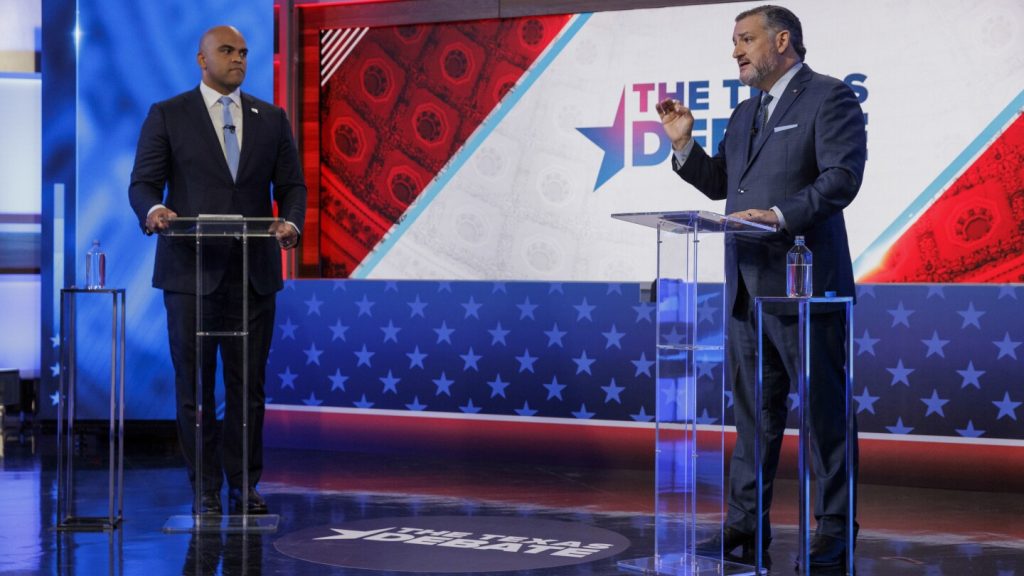The only debate between Republican Senator Ted Cruz and Democratic Representative Colin Allred took place on Tuesday night, with both candidates trading attacks over abortion and immigration. This closely watched race could ultimately determine which party gains control of the U.S. Senate. Democrats nationally see Texas as a potential pickup opportunity, while Cruz is urging Republicans to take the state seriously as he faces a competitive race to keep his seat. Cruz consistently tried to link Allred to Vice President Kamala Harris throughout the debate, portraying Allred as out of touch in a state that has not elected a Democrat to a statewide office in 30 years. Allred criticized Cruz over Texas’ strict abortion ban that lacks exceptions for rape or incest, a central issue in his campaign.
When asked about his support for Texas’ abortion law, Cruz emphasized that the specifics of abortion legislation should be determined by the state Legislature, noting that he does not serve in that capacity. He also criticized Allred for his positions on transgender rights and immigration policies, accusing him of changing his stance on border security since being elected to Congress in 2018. Allred defended his views by emphasizing the need to discuss border security without demonizing individuals. The candidates closed the debate by attacking each other, with Cruz framing an Allred victory as a threat to the Republican hold on Texas, while Allred portrayed himself as a moderate and criticized Cruz’s approach to politics.
The debate provided Allred, a former NFL linebacker, with an opportunity to increase his name recognition among Texas voters. He has focused on protecting abortion rights as a key platform and has been vocal in his opposition to the state’s abortion ban. Cruz, known for his staunch conservative stance in the Senate, has shifted his campaign focus to highlight his legislative record. Both candidates have raised nearly $100 million each, making this one of the most expensive races in the country. Outside groups have also spent tens of millions of dollars on the race, reflecting the high stakes involved.
Despite Texas’ reputation as a solidly conservative state and the Democrats’ three-decade long drought in statewide elections, the party has grown optimistic about its chances in recent years. The margins of victory for Republican presidential candidates have steadily decreased since 2012, with the state becoming more competitive in each election. Trump won by less than 6 percentage points in 2020, the narrowest victory for a Republican presidential candidate in Texas since 1996. Political experts believe that while Texas remains a red state, it is not as deeply conservative as it once was, indicating a potential shift in the state’s political landscape.


